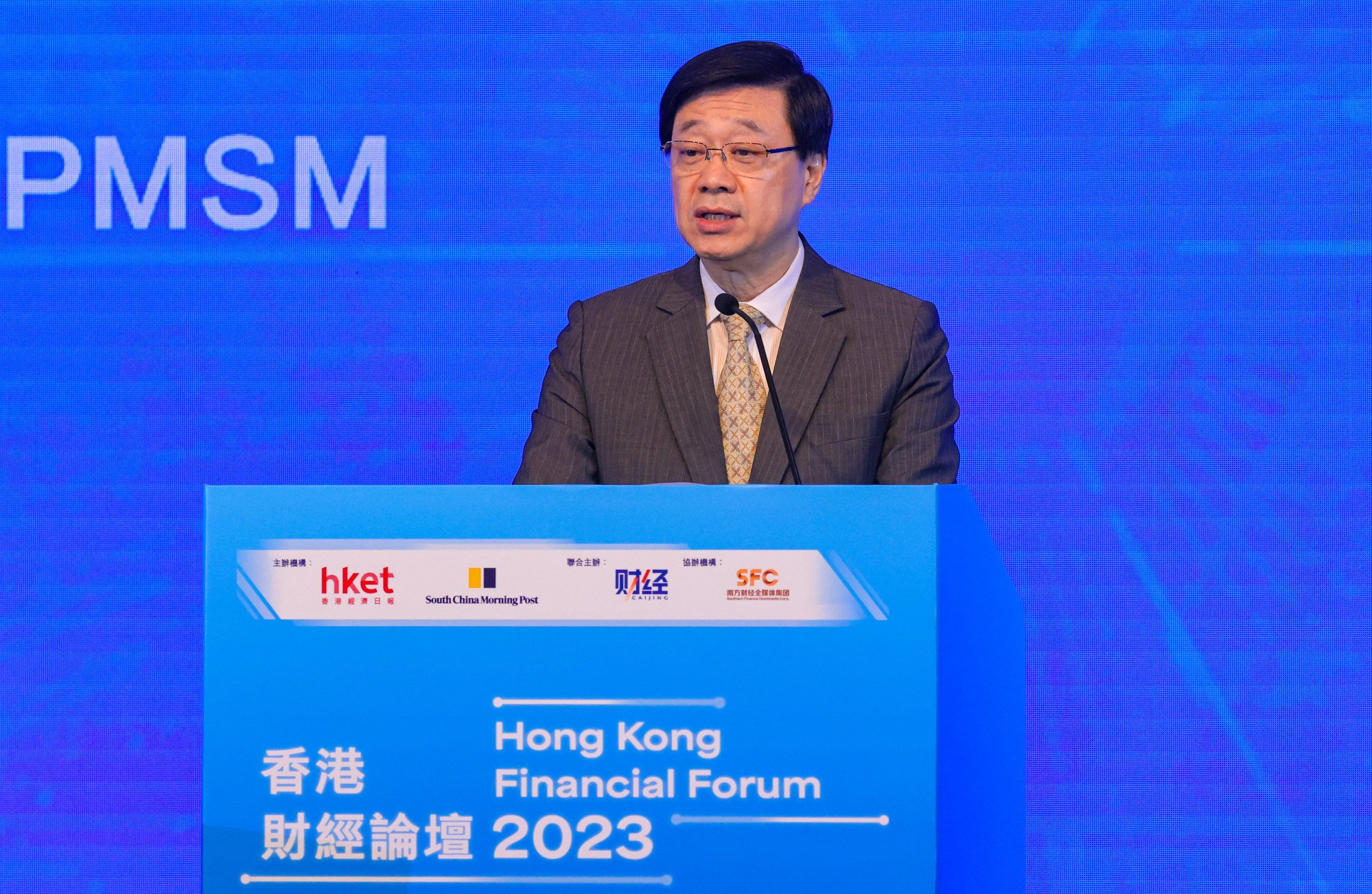Hong Kong maintaining international character is the ‘secret code’ for it to thrive and contribute to country, says Beijing’s top official in city
Such internationalism was crucial to Hong Kong’s position as a super-connecter in China’s modernisation, Zheng said.
“It will not and cannot change in the face of any challenges or storms,” Zheng said.
Finance chief Paul Chan updates Xi Jinping on Hong Kong at Apec talks
He added leveraging its internationalism was vital for Hong Kong to advance from stability to prosperity.
“To better integrate into the overall development of the country, Hong Kong must make full use of its international strengths,” he said.
The liaison office chief also said that Hong Kong making good use of its international ties was the “starting point” for it to serve and contribute to the country, which was advancing towards modernisation.
He said the city should strive to join the Regional Comprehensive Economic Partnership (RCEP), the world’s largest free-trade deal, and make further contributions on the international stage.
Hong Kong should also enhance its role as a hub for offshore renminbi business, serving the country’s efforts in promoting the currency’s internationalisation, he added.
Top Beijing official urges Hong Kong to act as catalyst for development goals
In addition to actively taking part in national development plans such as the Belt and Road Initiative and Greater Bay Area, Zheng also called on the city to leverage its strengths in financial media and think tanks to establish branded financial forums, gathering top financial intelligence.
“I believe that Hong Kong’s international friend circle will only continue to grow larger, and its international stage will only become broader,” he said, while pledging the liaison office’s support for the city to achieve these goals.
The belt and road scheme is an economic framework designed to connect China with economies in Asia, Europe and Africa, while the Greater Bay Area refers to Beijing’s plan to link Hong Kong and Macau with nine Guangdong cities as a new economic powerhouse for the country.

Chief Executive John Lee Ka-chiu told the forum, held at the Convention and Exhibition Centre in Wan Chai, that since its return to the country, Hong Kong had become the only city in the world that brought together the strengths of China and the international community.
“Under the solid protection of the rule of law, Hong Kong has provided a safe and stable business environment for investors and entrepreneurs. In this free and open society, they can pursue their ambitions and realise their grand visions,” he said.
He noted that the first Saudi Arabian-focused exchange-traded fund (ETFs) in Asia would be listed on the Hong Kong stock exchange on Wednesday. It has the largest assets under management in the world among such ETFs.
That type of collaboration was sufficient to prove Hong Kong was an important value-added platform for global financial connectivity, Lee said.
The forum also featured three discussion panels on topics related to new opportunities for Hong Kong, new growth potential and capitalising on the city’s strength.
During the panel discussion on Hong Kong’s growth potential, Financial Secretary Paul Chan Mo-po told the audience the city, as a small but highly open economy, could be significantly influenced by external factors.
He pointed to the Middle East and Southeast Asia as markets Hong Kong should turn to for future economic development as they would become important sources of the global economy in the future.
Beijing’s top envoy in Hong Kong warns ‘hostile foreign forces’ still at play
Panellist Rimsky Yuen Kwok-keung, a former Hong Kong justice chief, said international arbitration services were an essential component for the city to maintain its status as a financial and business centre.
Yuen, co-chair of the Hong Kong International Arbitration Centre, said the 344 business arbitration cases the body handled in 2022 involved companies from 63 regions which were under more than 10 different legal systems.
“The judgments rendered by Hong Kong courts in relation to arbitration are often cited in other countries. This demonstrates that the arbitration precedents set by Hong Kong courts are recognised and carry authority internationally,” Yuen said.
Panellist Yu Feng, co-founder and chairman of private equity firm Yunfeng Capital, said Hong Kong remained a crucial connecting point for mainland companies expanding abroad and for foreign firms seeking to enter the Chinese market.